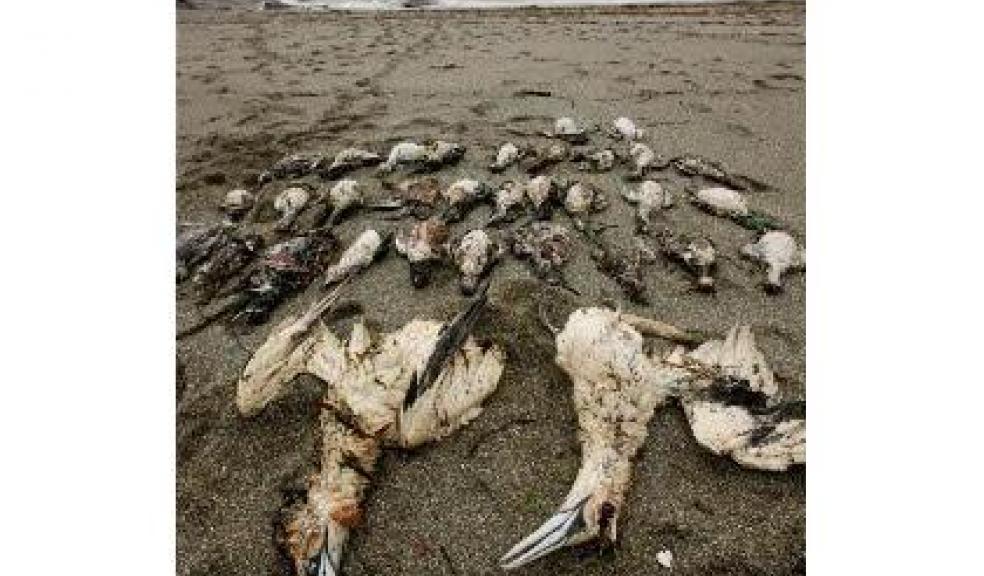
NGOs and shipping industry make joint call for review of legal discharge status of PIB
The number of seabirds recorded washed up on beaches in two incidents along the English Channel covered in polyisobutene (PIB) has passed 4,000.
Now, leading wildlife conservation and animal welfare charities and the UK Chamber of Shipping, supported by the wider industry body MaritimeUK, have come together as a single voice to call for an urgent review of the hazard classification status of PIB.
The Maritime and Coastguard Agency (MCA) is currently investigating the cause and culprit of these incidents. If it is confirmed that this disaster was the result of illegal activity, the UK Government and the International Maritime Organisation should ensure there is no obstacle to prevent those responsible from being brought to justice. To date, however, no-one has been successfully prosecuted for illegally discharging PIB from ships in European waters.
Although not directly toxic to seabirds, polyisobutene becomes sticky when it comes into contact with seawater, coating the plumage of seabirds, restricting their movements and preventing them from feeding.
Currently, it is legal to discharge PIB in small quantities, based on certain conditions as set out by the international MARPOL Convention (International Convention for the Prevention of Pollution from Ships). However, the impacts of PIB on marine ecosystems, as well as the amount of PIB released routinely as part of legal shipping operations, are not well known or understood.
Alec Taylor, marine policy officer for the RSPB, said: “The needless deaths of thousands of seabirds on our beaches has sickened and angered many people. With support from the shipping industry, we’re hoping that the UK Government can push for tighter regulations preventing the discharge of PIB into the sea for good.”
Pollution programme manager at the Marine Conservation Society, Dr Robert Keirle, said: “The International Maritime Organisation meeting this week must reclassify PIB as soon as possible under the International Convention on the Prevention of Pollution from Shipping.”
David Balston, director of safety and environment at the UK Chamber of Shipping, said: “Although no regulation can eliminate the possibility of illegal activity, we strongly support an urgent review to see how best to help prevent a recurrence of the recent deaths and injury to wildlife.”
Adam Grogan is a senior scientist with the RSPCA. He said: “It is fantastic that so many organisations are joining forces to campaign on this issue - it sends a clear message that something has to change and the discharge of this lethal substance must be banned.
“This had been one of the worst cases of marine pollution in recent memory – over 4,000 birds have suffered or died. Our staff have been working round the clock to try and help the casualties which could be saved, but many more washed up along our beaches were already dead.”
Joan Edwards is the head of The Wildlife Trusts’ Living Seas Programme. She said: “The marine wildlife around our shores is internationally important, but sadly it faces many threats. I have seen the carnage on the beaches and removing the pollution threat of this devastating substance is an easy win in the ongoing battle to safeguard the future of our marine environment.”
This call to action also comes at the start of the International Maritime Organisation (IMO)’s latest meeting of its environmental subcommittee, the group that would ultimately agree to a reclassification of PIB under the MARPOL Convention, should one or more member governments present a case.











